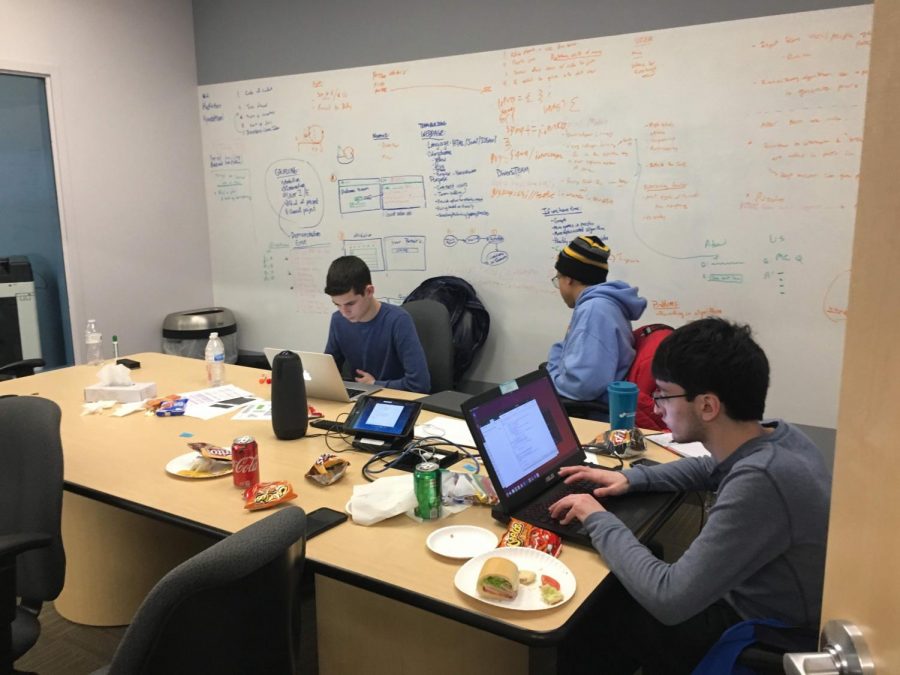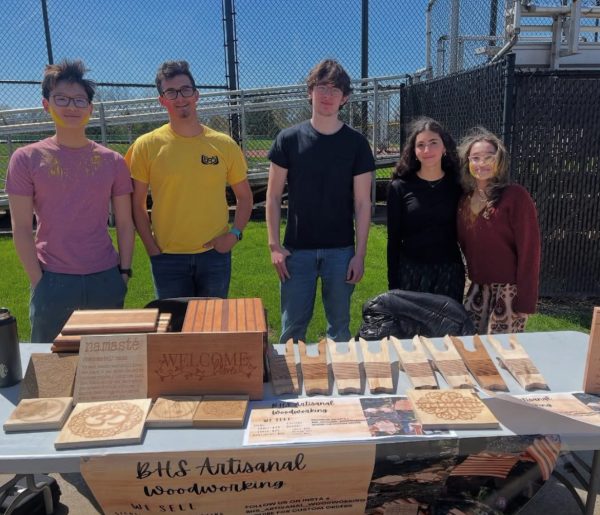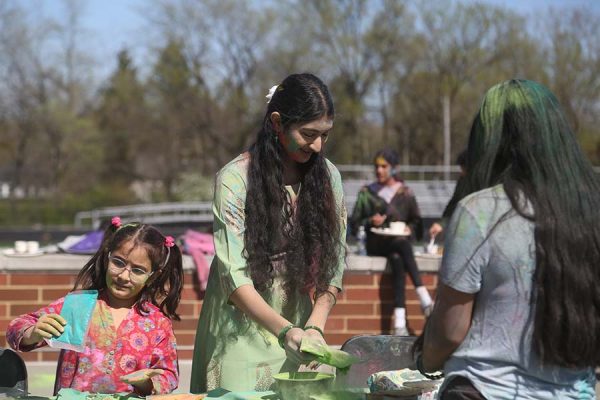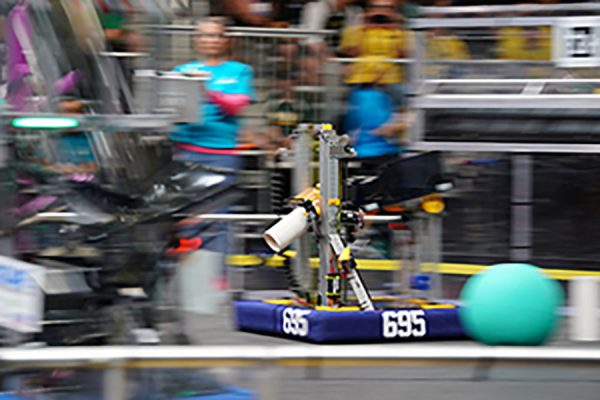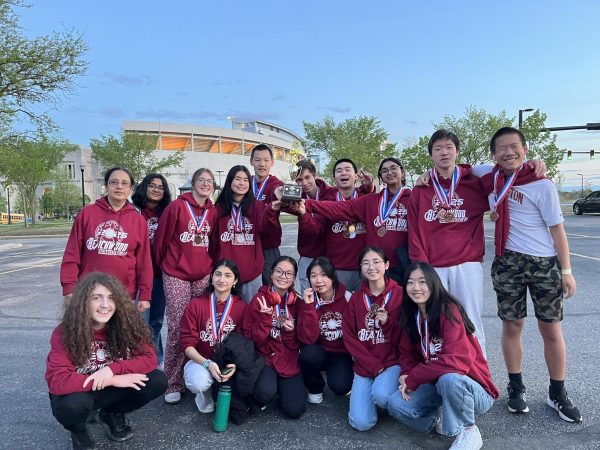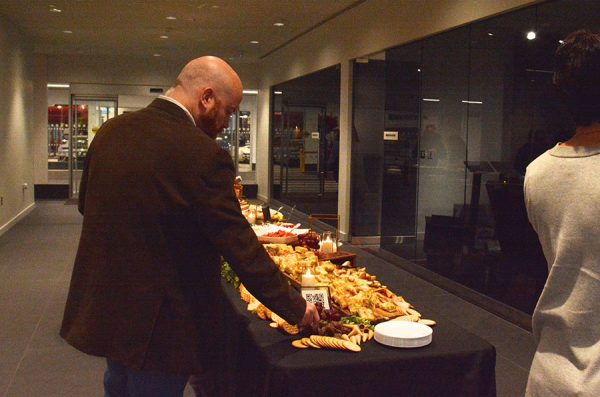Computer Security Club Teaches Coding, Teamwork
The computer security club participated in their first coding competition, the Hyland Hackathon, from Jan. 4-6.
Over the course of three days, teams collaborated to build a project. Some students even stayed overnight.
According to junior Zyad Shehadeh, the club members learned more about interacting as a team than they did about coding.
“I think we just need to get familiar with… solving these problems as a team, [such as] brainstorming together if we’re stuck on a problem and helping each other out, just bouncing ideas off each other,” Shehadeh said.
Sophomore Gregory Perryman felt the experience was valuable.
“We got a chance to learn so much in such a short amount of time,” Perryman said. “It was fun because together as a team, we pushed our limits and developed new skills and ended with [an] awesome final project.”
Computer security club was first initiated last year by Daniel Mishins, who graduated in 2018.
“It was very informal and there weren’t that many meetings, so it spiraled out in a way,” Shehadeh said.
Shehadeh has only recently revived the club, and is working to recruit more members.
“The toughest thing [about starting the computer security club] was spreading the word,” Shehadeh said. “[But] the word has been spreading and I find people who are interested are usually just naturally compelled to join this club.”
In computer security club, students interested in computer software expand their coding, programming and hacking knowledge.
“Students are given opportunities to learn about aspects of computer science and computer systems that courses currently offered at BHS don’t cover, which may expand their knowledge about computers beyond our current curriculum,” said AP Computer Science teacher John Kaminski, who is the current adviser of the club.
“When you open a computer and learn to code and protect it, there are so many possibilities of what you could do,” Perryman added.
During practice, each student works quietly and diligently at their own desk, typing away at their computers. Every so often, Shehadeh gets up to check on every person’s progress, lending help whenever it’s needed.
“It’s a very inclusive environment for all skill levels,” Perryman said. “[Everyone] is very nice and willing to help me understand concepts.”
To improve their skills, students work together on problems and tutorials released from previous competitions.
“It’s mostly a bunch of heavily motivated kids doing a lot of self-teaching,” Kaminski said. “I am occasionally able to help them with things, but most of it they’re learning on their own.”
Most of the competitions the club is planning to compete in are held online. Given a certain amount of time, participants must try to complete a given task.
Shehadeh hopes to eventually compete in the picoCTF, a hacking contest hosted by Carnegie Mellon CyLab.
According to the picoCTF website, the contest “consists of a series of challenges centered around a unique storyline where participants must reverse engineer, break, hack, decrypt, or do whatever it takes to solve the challenge.”
“We are just working towards competing in the picoCTF” Shehadeh said. “The club is still fairly new and there are many ways we can go with it, depending on the people in it… but my hope is this club becomes beneficial for students who like to learn.”
With increasing technological advances in the modern world, Computer Security club offers a chance for students to explore potential future career options relating to computer science.
“I hope we can all learn more about the internet and software as it is pretty useful, especially in this time,” Shehadeh said.
“Hopefully people will realize that… high-tech careers are the highest paying, most popular careers,” Kaminski added.
The U.S. News & World Report ranked software developer as #1 in the 100 best jobs of 2019, with a median salary of $101,790.
“[Computer security club] is very relaxed compared to others, since it’s fairly new,” Shehadeh said, “so for those unsure of joining, I would tell them to come to a meeting or two see how they like it… They will quickly realize that this club is meant to be enjoyable and informational.”
“If you’re worried about the time commitment, don’t worry—it’s really flexible,” Perryman added.
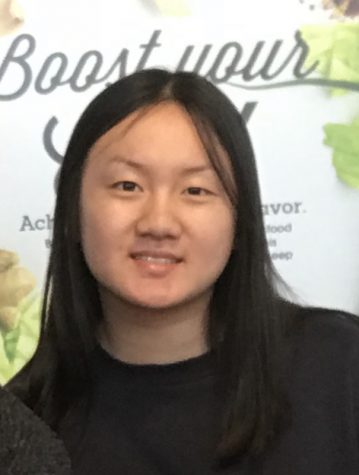
Vivian Li began writing for the Beachcomber in 2016. She covers various news and feature stories in BHS and the community. In addition to writing for the...



